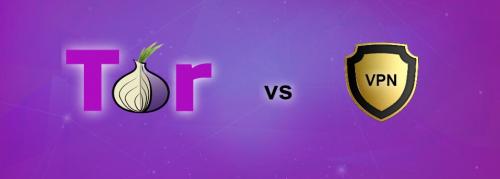Tor vs VPN – What’s the Difference Between the Two?

Are you, like millions of other individuals, worried about your online privacy? With concerns surrounding data tracking and hacking on the rise, more and more people are using anonymization tools to browse the Internet without revealing their identity.
However, choosing the right one for your needs can be a tough endeavor! That’s why we’ve compared the advantages and disadvantages of two popular options, namely Virtual Private Network (VPN) and The Onion Router (Tor).
What is Tor?
The Tor browser is mainly used to protect your online identity.
Upon using it, everything you do online goes through their network, which hides
your online activities from prying eyes. This is achieved by directing your
traffic across multiple Tor servers (known as relays). As your traffic goes
through these volunteer-run servers, your data is encrypted and original IP
address disguised so that nobody can trace your movements.
Pros of Tor
Free of Cost
The Tor browser is available for free, so using it won’t
cost you anything. In fact, advanced users can also download the source code
and make adjustments to it as they see fit.
Intuitive
Tor is no different than most of today’s browsers. It’s
user-friendly and accessible to everybody, making it very simple to use.
Privacy Protection
The Tor browser safeguards your privacy by hiding your
device’s original IP address. Everyone from the average Joe to political rebels
use this tool to keep their data safe from big corporations or repressive
governments.
Cons of Tor
Legal Issues
Many governments keep a close eye on Tor users as the
browser is commonly used to access the dark web and engage in illicit
activities like counterfeit currency dealings and drug trade. So, simply using
Tor could risk landing you in legal trouble.
Slow Connection
Speeds
Since your traffic passes through multiple relays, you’ll
often experience a delay when accessing content like photos and videos.
Therefore, Tor isn’t the best choice when it comes to bandwidth-intensive
activities like streaming or downloading.
Limited Accessibility
Many online services block Tor traffic. When you visit these
sites, you’re going to receive an error message such as “404 Page Not Found”.
Others don’t but you have to solve a lot of CAPTCHAS to access the site.
What is a VPN?
A VPN is a popular tool that allows users to encrypt all Internet
traffic and change their IP address. It operates a network of servers placed
around the world. When connected, your requests go through one of the remote
servers before reaching your intended destination. As it passes through this
server, your requests are encrypted and IP address replaced. This hides your
real identity and enables you to access the Internet free from restrictions.
Pros of a VPN
Fast Connection
Speeds
Since you’re establishing a connection with one server, a
VPN won’t slow down your Internet connection as much. This means that you can
stream and download without facing any interruptions or performance issues.
Complete
Accessibility
It doesn’t matter where you’re located, using a VPN will
give you total access to the Internet. If a service or site is unavailable in
your region, all you’d have to do is connect to country where it’s supported
and accessible. It’s as easy as that!
Device-Wide Traffic
Encryption
As opposed to Tor, which only secures the traffic coming
from the browser itself, VPNs are going to encrypt all the traffic originating
from your mobile device or computer. Therefore, they’re considered to be more
secure.
IP Address Masking
A VPN essentially changes how you’re viewed online. Every
device on the Internet is identified by their respective IP address. With a
VPN, you can change your IP address to any country and make it impossible for
your online activities to be tied back to you.
Cons of a VPN
Cost Money
While there are free options on the market (you’re better
off avoiding them), the safer versions will set you back by a few dollars per
month. Some also offer paid trials so that you can
test out the service before committing long-term.
Online Activity Logs
Some VPN providers keep logs of your online activities while
connected to their service, which defeats the very purposes of using these
tools. As such, you’re better off sticking to companies that have independently
audited no-log policies.
IP Leaks
VPNs are sometimes prone to IP leaks, revealing your true
identity to the outside world. This, however, can be prevented by choosing a
provider that offers WebRTC, IPv6, and DNS leak protection along with a kill
switch.
Final Word – Tor or VPN?
Even though both VPNs and Tor protect your online privacy
and anonymity, the former is the better choice provided that it’s used
properly.
Tor is a free to use browser that encrypts your requests,
but offers slow connection speeds, limited access to sites, and could result in
legal trouble (even if you’re doing nothing wrong!)
A VPN, on the other hand, is fast, secures all your traffic using encryption, and gives you complete access to the Internet.
Post Your Ad Here
Comments